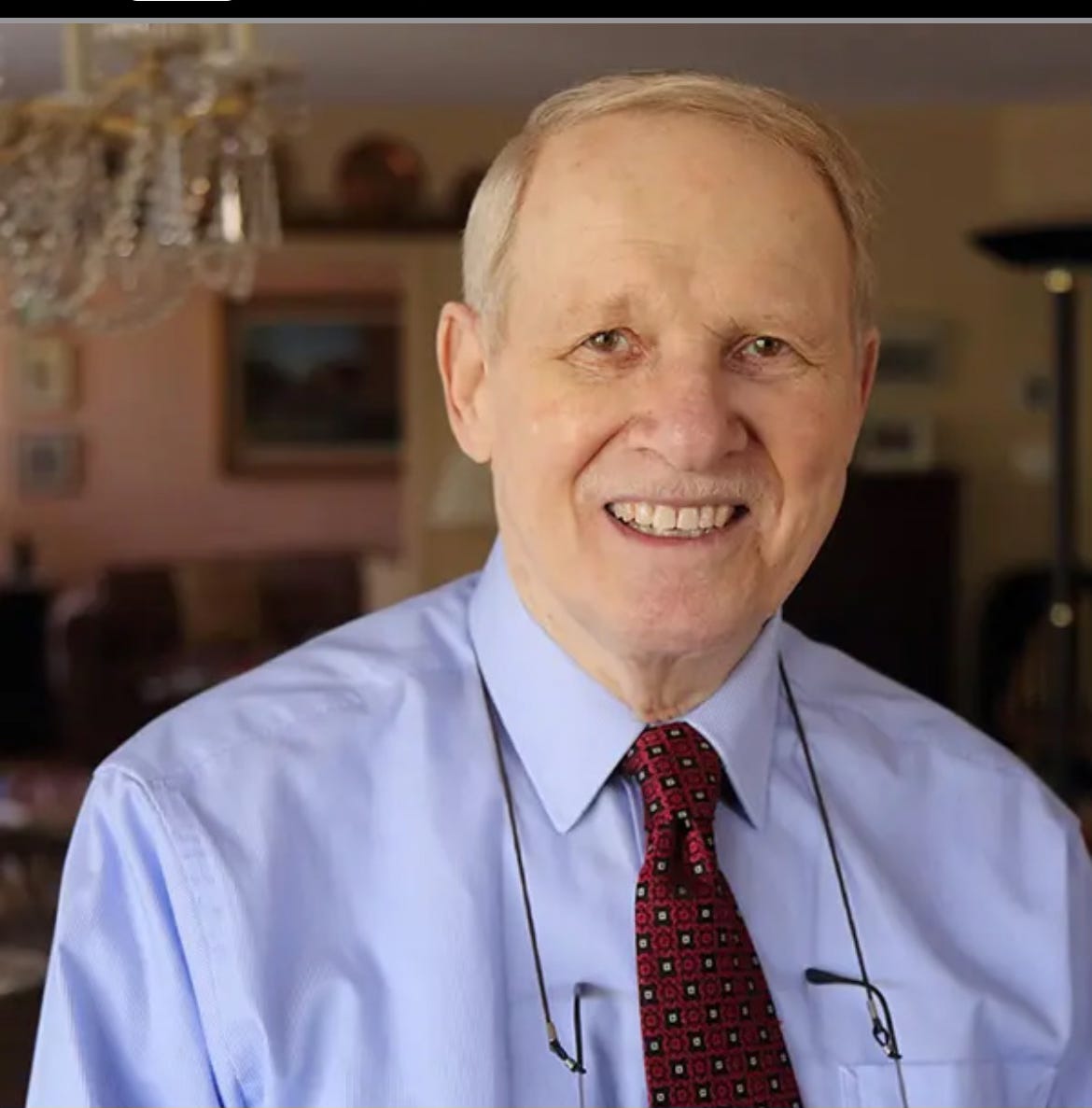I hate to kick off the year with an obituary-type tale, but I didn’t want to finish 2024 with a death post either and at a certain point we just need to ignore the societal construct known as the Gregorian calendar and tell the stories that need to be told:
Stanley Diamond, the main character of my upcoming non-fiction book “One in Six Million” passed away a few weeks ago.
Six years ago this week
I met Stanley Diamond for the first time.
He did not seem particularly interesting, an eighty something year old man with white hair and a thin moustache who used a cane to walk. But I was wrong. He was easily one of the most interesting people I have ever encountered.
“I am a genealogist,”
he said, by way of introduction. Did my eyes glaze over? Possibly. But as the long winter afternoon loomed, I asked if he had any good stories.
And that’s when my eyes snapped to attention.
Stanley began to tell me about a woman he had just helped. A Holocaust Survivor from Siberia who grew up believing she was Jewish but was never able to prove it. Her parents found her in a ditch on the side of the road when she was just a baby. There was a note pinned to her foundling blanket that said “Maria, November 1941” and that is all she knew about where she came from.
Based on that shred
of information only, Stanley told me, he was able to find (minor spoiler alert) over 100 of her relatives alive and well and living in Israel.
Can you imagine
the kind of tenacity it requires to orchestrate that kind of search?
I was immediately captivated.
I needed to know exactly how Stanley got from point A to a herculean point B. Who did he speak to? Where did he look? Did Maria take a DNA test? Are DNA tests even available in Siberia?
Stanley agreed to let me
write this story. He was no stranger to the paparazzi. He had appeared in the newspaper, on TV and on the radio countless times. He had done extensive research for “Finding Your Roots” the PBS show about, well, finding your roots. He had done background research for Gwyneth Paltrow. For Alan Dershowitz. For Doug Emhoff - before his famed trip to Poland.
Stanley Diamond’s story has a few common themes.
He believed in fate, which he called by its Yiddish name, bashert. He believed in teamwork, and was always quick to name the people who helped him build Jewish Records Indexing - Poland (JRI-Poland). And most importantly, he believed in never giving up.
He used his gifts
and expertise to help families that had been separated in the Holocaust find each other. He helped survivors like Maria locate living relatives, and understand what happened to those who were no longer living. He also helped people who simply wrote to him asking for help, or who happened to call into a radio show where he was a guest or who showed up to one of his many, many workshops.
There is so much to learn
from a life lived like Stanley Diamond’s but today I bring you this. So many of us would look at a tragedy like World War II and think that there is absolutely nothing we can do about it. It happened decades ago. It happened millions of kilometres away. It did not happen to anyone I know.
But Stanley looked at it and thought about what he could do, even now, to right some of the wrongs. To chase family unification, against all odds and with minimal data. He worked tirelessly and selflessly with the only goal of making the world a better place.
As you move forward through 2025,
I urge you to lean into Stanley’s legacy. Take what you need of his energy, of his drive, of his persistence. And make it your own.






Stanley was a force to be reckoned with. He made a difference in the world and I am honored that I got to work with him and share his ancestry. May his memory be for a blessing.
Glad you caught him when you did. Look forward to reading your book!